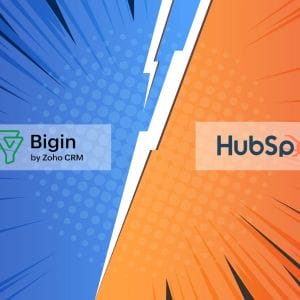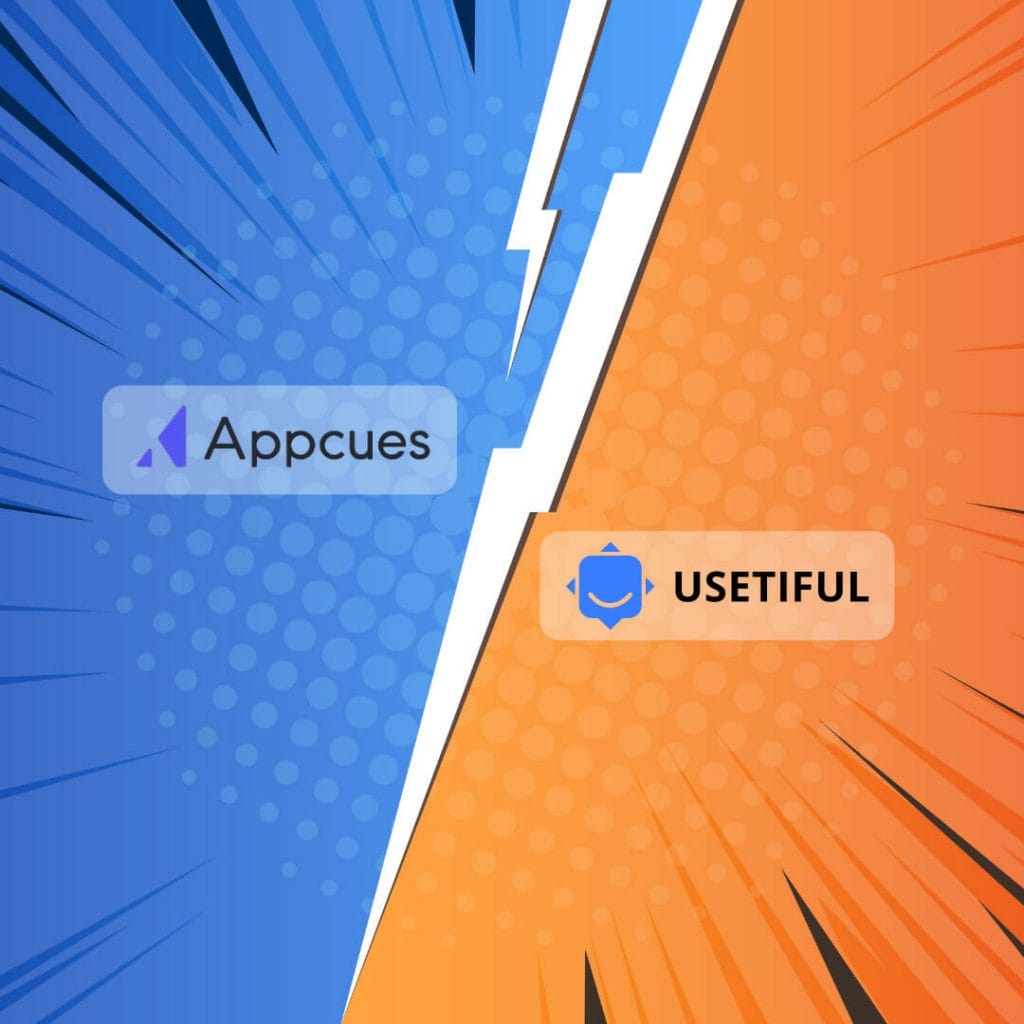Customer relationship management (CRM) solutions are crucial for businesses of all sizes to manage their customer interactions effectively. Two popular CRM platforms that cater to the needs of small and micro businesses are Bigin and HubSpot CRM. Both platforms offer a range of features designed to streamline sales processes, automate tasks, and help businesses nurture their customer relationships.
HubSpot CRM is a well-known CRM tool with a comprehensive suite of marketing, sales, and customer service capabilities. It enables businesses to align their teams and track customer interactions across multiple touchpoints. On the other hand, Bigin is a CRM solution created by Zoho, focused on simplicity and providing an easy-to-use platform for small and micro businesses. It offers essential CRM features, including contact management, sales pipeline tracking, and email marketing, while keeping the interface user-friendly and straightforward.
When comparing Bigin and HubSpot, several factors come into play, such as the cost, ease of use, automation capabilities, and integrations. It is essential for businesses to analyze their specific needs and requirements in a CRM solution to make an informed decision. For some, the simplicity and cost-effectiveness of Bigin might be a better fit, while others may find the robust features provided by HubSpot CRM more suitable for their organization.
Round 1: Best UX

When comparing Bigin.com and Hubspot.com, it's important to assess the user experience provided by both CRM platforms. A good user experience is crucial for businesses looking to improve their sales process, customer relationships, and overall efficiency.
Bigin.com, a Zoho CRM solution, boasts a clean and simple interface that's designed specifically for small businesses. The layout provides easy navigation and quick access to important information. The platform's design aims to streamline the user's workflow and facilitate efficient operations, making it an attractive option for those looking to manage their sales pipeline effectively.
On the other hand, Hubspot.com takes pride in its modern user interface and design elements. The platform is intuitive, with a focus on providing an enjoyable and seamless experience for users. Hubspot's ease of use is one of its main selling points, as it strives to remove obstacles often encountered when adopting new CRM software. With their drag-and-drop functionality and relationship tracking features, Hubspot aims to cater to sales teams of any size or experience level.
When it comes to user experience, both platforms are strong contenders. While Bigin.com offers simplicity and efficiency tailored to small businesses, Hubspot.com provides a visually appealing interface and a focus on intuitiveness. Whether a company prioritizes straightforward navigation or a more comprehensive feature set, the choice between these two CRM platforms will largely depend on the specific needs and preferences of the organization.
Round 2: Feature Comparison

When comparing Bigin by Zoho CRM and HubSpot CRM, it's crucial to look at their features side-by-side to better understand the capabilities they offer.
Feature Bigin by Zoho CRM HubSpot CRM Marketing Automation Limited Advanced Sales Automation Yes Yes Customer Support Yes Yes Email Marketing Yes Yes Inventory Management No No
In terms of marketing automation, HubSpot CRM outshines Bigin with its advanced automation capabilities. HubSpot's platform makes it easier to attract, engage, and delight customers across multiple channels. On the other hand, Bigin offers limited marketing automation features, making it a less suitable choice for businesses with advanced marketing needs.
Both Bigin and HubSpot CRM excel in Sales Automation. They offer tools that streamline sales processes, effectively manage leads, and enhance team productivity. The platforms enable users to track deals, score leads, and create custom sales pipelines.
When it comes to customer support, both platforms stand tall. Each provides customer service through email, phone, and live chat, ensuring that users can quickly address any issues they come across. Additionally, both platforms furnish extensive knowledge bases and support communities to promote user success.
In the realm of email marketing, both Bigin and HubSpot CRM offer robust solutions. Users can create targeted, personalized emails, set up automated email campaigns, and analyze email performance using these platforms. Each CRM also has contact management tools, which help in segmenting and managing subscriber lists.
Finally, inventory management is not a feature found in either Bigin by Zoho CRM or HubSpot CRM. Organizations with inventory management requirements may want to explore other integrated solutions or third-party tools that can work with these CRMs.
By analyzing these features, it is evident that both Bigin and HubSpot CRM have their strengths and limitations. Users must take their business needs, marketing requirements, and budget into account when choosing the best CRM solution.
Round 3: Pricing

When considering Bigin vs HubSpot, one of the major factors for users is pricing. Both platforms offer free plans with basic functionalities, which are quite useful for small organizations or teams starting to use CRM software. However, as your business grows, you might want to explore their respective paid plans to gain access to advanced features.
Bigin Pricing: Bigin offers both monthly and annual plans. The monthly plan for Bigin starts at $9 per user. For annual payment, that comes to $7 per user, per month, making it an affordable option for small and medium-sized businesses. Bigin does not have multiple pricing tiers, as it caters mainly to small businesses that need a simple, straightforward CRM solution.
HubSpot Pricing: Unlike Bigin, HubSpot has a tiered pricing structure, which includes a Free, Starter, Professional, and Enterprise plan. The free plan comes with core CRM features, but as your needs grow, you can opt for the Starter plan at $50 per month. The Professional plan and the Enterprise plan need a custom quote, as they come with advanced features tailored to the requirements of larger organizations.
Both Bigin and HubSpot offer flexible pricing options, allowing businesses to choose the most suitable plan based on their needs and budget. Bigin tends to be more affordable since it focuses primarily on small businesses, whereas HubSpot caters to a broader range of businesses and their corresponding needs, hence offering various pricing tiers.
In terms of affordability, Bigin takes the lead with its low-cost, yet comprehensive CRM functionality. However, HubSpot does not lag behind, as its pricing tiers let companies pick the plan that best matches their requirements, keeping any additional expenditure under control. Both platforms make a strong case, with their unique selling points in the pricing round of this SaaS battle.
Battle Decision: Bigin.com is the winner

When comparing Bigin by Zoho CRM and HubSpot CRM, there are several factors that account for Bigin's victory in this SaaS battle.
First, the primary target market for Bigin is small and micro businesses, which means that it is specifically tailored to meet the needs of these companies. For growing teams searching for a CRM tool, Bigin provides a more focused and efficient solution.
Second, Bigin's pipeline-centric approach gives smaller organizations a simple yet powerful way to manage and monitor their sales pipeline. This approach ensures that businesses can get up and running quickly, without being overwhelmed by the complexities of a full-scale CRM solution.
When it comes to pricing, Bigin also has the edge. It offers a per user pricing model, which makes it a more cost-effective choice for businesses with a limited budget. While HubSpot does have a free CRM version, its features may be limited and not sufficient for every small business' needs.
In terms of usability and adaptability, Bigin is designed to be intuitive and easy to learn, which is essential for SMBs with limited resources. This user-friendliness is evidenced in Bigin's customer reviews, where users have praised its ease of use and implementation.
Moreover, Bigin offers seamless integration with other Zoho products, allowing businesses that are already using Zoho services to unify their various systems under one umbrella. Additionally, Bigin supports an array of third-party integrations, further increasing its utility for small businesses.
In conclusion, the combination of targeted features, affordable pricing, and ease of use makes Bigin the winner in this CRM battle against HubSpot. For small and micro businesses in search of a pipeline-centric CRM solution, Bigin is the clear choice.



